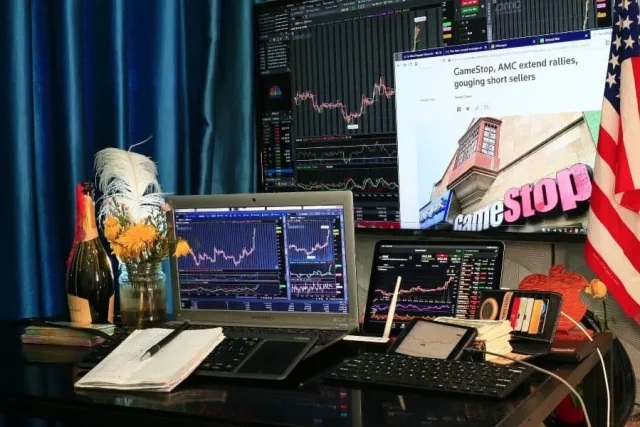Day trading is an essential strategic tool in forex and stock markets. The trend of buying and selling securities within a single day has seen remarkable growth in the past two decades with brokerages and online trading development. Many years ago, only those working for large financial firms and trading houses were able to trade on the stock market. But with information being available at your fingertips thanks to the internet, trading online has become a level playing field.
You can read expert analyses by blog writers and financial websites to get an idea about the options available in broker comparison tools online.
Today anyone can access financial markets to execute transactions. Success hinges on the adoption of various tools available at your disposal. The strategy of day trading has also gained currency among retail forex traders. Reacting to price fluctuation in currency pairs in a highly liquid and volatile market requires patience and deep knowledge of analyzing price charts and economic data because of the numerous risks involved in day trading. In this article, it will help you How to choose the right trading platform and app in Middle East.
Day trading and forex have similar characteristics but at the same time have unique differences to suit different traders, which we will explore in this article.
Leverage
Leverage is an extraordinary tool to make money, but you can also suffer losses. For example, the leverage ratio could go as high as 100:1 in the forex market, meaning for every $1,000 in your account, you can play with $100,000 in value. The large sums involved make it almost impossible to trade currencies without leverage which is a widely accepted practice in forex, unlike in stock trading, where it is heavily regulated. Leverage helps forex traders multiply their gains, with brokers being more generous than day trading in the stock market. Short traders require assets worth 150 percent of the value of securities sold.
Time
A significant difference between day trading and forex is the time available. Both forex and stock markets are open five days a week, but the currency market is open 24 hours a day. That means you can trade forex on any day or night, depending on your time zones.
Day trading stocks is the technique of avoiding the risk of keeping your position overnight by exiting before the day ends. In contrast, in forex, you are only concerned about risk during the weekend when markets are sleeping. You can open a position at any time of the day or night since you know that the market will remain during the week and activate the stop-loss mechanism. In contrast, when the stock market collapses overnight before stop-loss could be triggered, you will lose funds because of price gapping.
Options
There are thousands of mechanisms related to the stock market, whereas there are few instruments in forex. Still, this distinction does not give either trade a clear-cut advantage. Stocks have a wide range of business models, industries, and sectors, while in forex, you have only a few currency pairs.
Since currencies are directly related to national economies, it is much more complex than understanding the stocks of a company. However, the opportunities are endless in stock trading than the mere hundred or so currency pairs you are dealing with in forex. It is a matter of personal choice when choosing between the two forms of trading. However, forex is less complicated with fewer instruments to understand, giving ample time for anyone to study and become an expert. At the same time, the multitude of stocks of different companies is a tad unwieldy to handle.
Movements
Another major factor to consider between day trading and forex is the state of the economy. When a country’s economy is flourishing and healthy, more investors can flood the stock market. As more people join the gold rush and maintain the momentum, day traders grab the opportunity to battle for a share of the pie, with stocks likely to rise 20 to 30% in one day. But the good times will not last forever in the stock market after reaching a peak; spikes significantly reduce the opportunities for traders. You can still make gains from shorting the stock market, but the practice is looked down upon as it is heavily regulated. It is not so with forex where you can thrive on market volatility since currency pairs designed as a means of exchange reflect two sides of a coin. There is no stigma, limitations from regulatory bodies, or questions about the ethics of buying or selling various currency pairs, meaning you can take advantage irrespective of which direction the market is flowing.
Regulation
As discussed earlier, it all boils down to regulation. Since forex deals with more than 300 currency pairs, it can be tedious to regulate, but there is a safety net because banks that are integral to forex are heavily regulated. The exponential rise in forex trading has seen governments taking a closer look at the forex market to insulate the public from unscrupulous retail brokers and scams. Although it retains an aura of mystique, forex is vulnerable to being infiltrated by scammers to a greater degree than the stock market resulting in regulation making its way into the forex market.
Analysis
In the final analysis, day trading is not something illegal or unethical, but without a doubt, it is not risk-free because you have to endure huge losses quickly when stocks go crashing. Forex’s liquidity and global nature make it a more viable option for traders assuring immunity from unexpected price movements.














